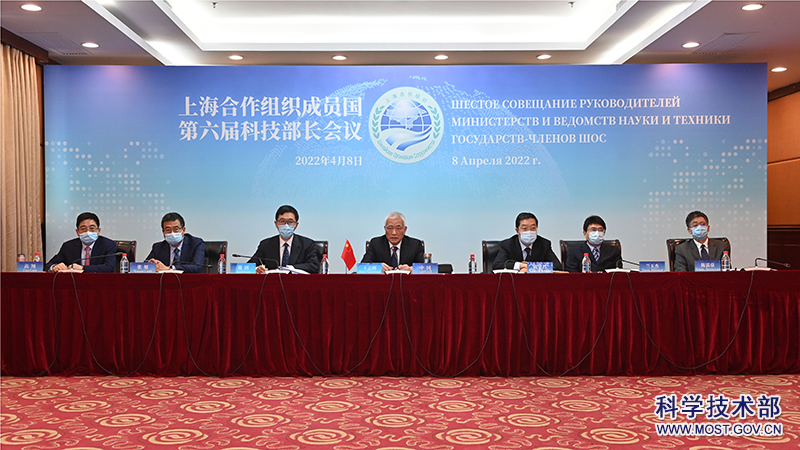
PHOTO:?Ministry of Science and Technology
By?WANG?Xiaoxia
China will continue to carry out its sci-tech innovation work and strengthen exchanges and cooperation with other countries, said Wang Zhigang, Chinese Minister of Science and Technology.
Wang made the remarks while attending the 6th Meeting of the Heads of Science and Technology Ministries and Departments of the Shanghai Cooperation Organization (SCO) Member States via video link on April 8, which was chaired by Uzbekistan in its capital Tashkent.
Science and technology are increasingly integrated into all aspects of socio-economic development and daily life, and becoming the main driver for the progress of humanity, said Wang, adding that a series of sci-tech advances, including artificial intelligence, big data and quantum science, will have a wide and profound impact on production and life.
Chinese authorities therefore, have been optimizing the mechanism of sci-tech innovation in recent years to promote high-quality economic development, safeguarding people's lives and health, and improving the ecological environment, said Wang.
He said that, in the future, China will adhere to inclusive innovation and enhance more exchanges and cooperation in the field of science and technology.
SCO Secretary-General Zhang Ming said in his opening address that the member states are committed to consistently promoting sci-tech cooperation in the SCO space.
During the meeting, participants coordinated the draft Programme of Cooperation on Artificial Intelligence between the SCO Member States, and the draft Action Plan on Scientific and Technological Cooperation in Priority Spheres for 2022-2025, which are to be submitted for approval to the SCO Heads of State Council meeting in September 2022, according to the SCO Secretariat.
They also approved the Mechanism for Implementing Joint Multilateral Research and Technology, and Innovation Projects within the framework of the SCO, and agreed to host the seventh meeting in India next year.
The trio will conduct a series of experiments in fields such as life science, fluid physics, combustion science and materials science. Notably, this is the first time that fruit flies have been taken on a Chinese space mission as experimental subjects. What made scientists choose fruit flies? What experiment will they undergo?
